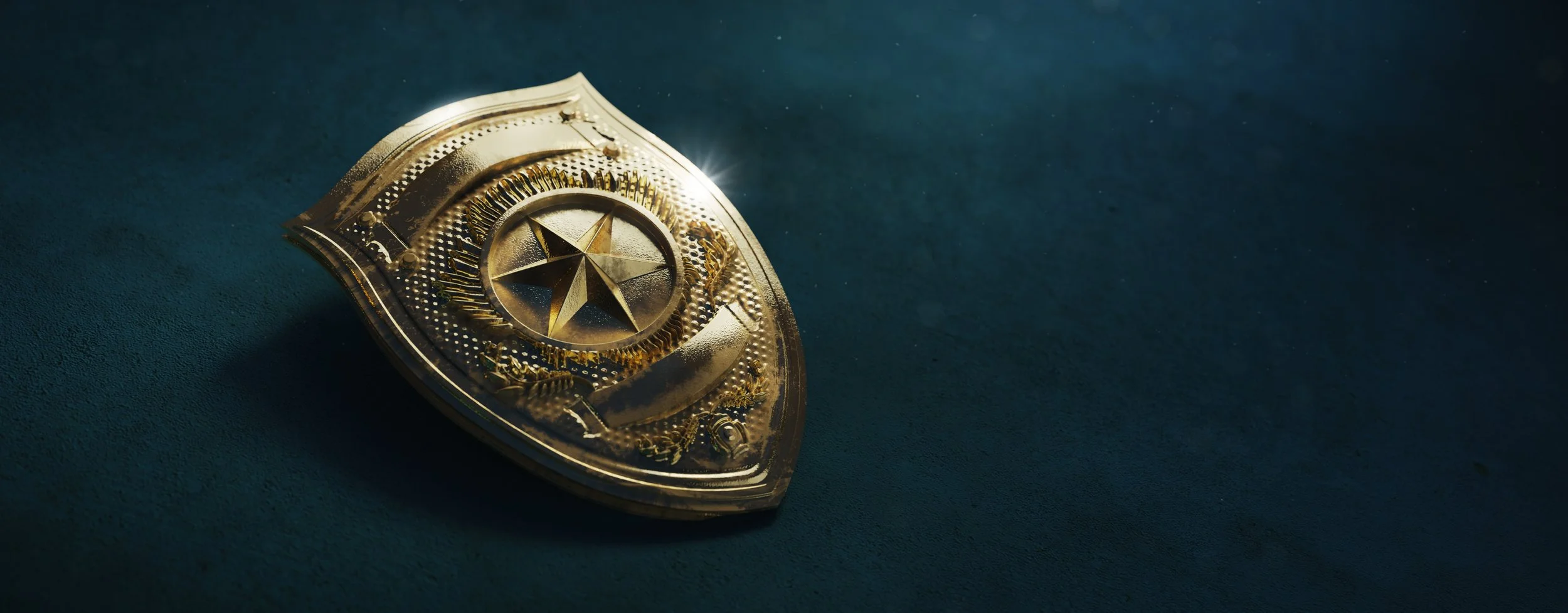Take Off The Badge
We know more about David than we do almost any other Biblical character. Were biblical characters mountains, David would be Everest. There are more than 1000 references to David in scripture. He is the subject of 66 chapters in the OT, and is referenced 59 times in the new. He is the author of at least 73 of the psalms. His stature is preeminent in the landscape of scripture. One writer summarized his staggering influence by reminding us that David “was not only an individual, but also an institution. He was not only a sovereign, but a symbol. His place in the historical unfolding of the redemptive process can hardly be exaggerated. If David's story was taken out of the Sacred Book, a gap would be made which nothing and no one could fill. He fell lower than some men, but he also rose higher. His lapses should be a perpetual warning, and his virtues a perpetual inspiration.”
The scriptures give David the rarest of compliments. It celebrates Job for his patience, Solomon for his wisdom, and Jeremiah for his passion. It tells us that Abraham was the friend of God, that Noah found grace with God, and that Moses spoke to God as a man speaks to friend face to face. But only of David does it say that he was a man after God's own heart. That means that if you were to put David’s heartbeat under a microscope, it would match the divine heartbeat—beat for beat.
David was at his best on a battlefield. In fact, what earned him the undying favor of Israel and a lasting place in the annals of world history was his defeat of a nine-foot tall giant named Goliath with only a slingshot. While pleading his case to King Saul that could actually beat Goliath, David shared his resume. He mentioned that he has killed a lion and a bear—all before he turned 17! Can you imagine the physical strength and psychological cunning required to kill a lion or bear—let alone a nine foot tall Giant with only a slingshot? Later, David killed 100 men to earn the affection of Saul's daughter, and killed an extra hundred—just in case. Estimates vary on how many battles David fought. Some argue 66 wars. Others, 85. But whether he fought in 66 or 95, the outcome was always certain. In each one, he triumphed valiantly.
But there was one battle in David’s life that he almost lost. There is an interesting detail tucked away in 2 Samuel 21:15. It says:
Once again the Philistines were at war with Israel. And when David and his men were in the thick of battle, David became weak and exhausted.
Another version says that
One time David got very tired when he and his soldiers were fighting the Philistines.
Still another says
Moreover the Philistines had yet war again with Israel; and David went down, and his servants with him, and fought against the Philistines: and David waxed faint.
As fierce a warrior as he was, even David got tired. And every single one of us--no matter how strong we are, how intelligent we may be, and how successful we have been—we will get tired. The scriptures do not tell us why David grew tired on this occasion. But one fact is certain: he did. And we will.
Dr. Brene Brown has written that one of the problems in our society is that we wear our exhaustion like a badge. How often you bragged about how “busy” or “overworked” or “hard-pressed” you are? I recently read an article about a group of young people who recently moved to Silicon Valley with only their laptops and have made a pact not to marry, vacation or enjoy their lives until they create the next “killer-app” for artificial intelligence. To justify his quest for riches, one rapper even quipped that “he would sleep when he was dead.” All of that sounds noble. But is it?
It might be demonic. It is certainly unhealthy. And it is definitely not sustainable. At some point, we all grow weary. To win the battle that day, David required some assistance. Later, his team decided that his fighting days (at least on the battlefield) were over, lest he “quench” the light of Israel. They took his badge.
And someone may need to take yours. Perhaps you should take it off before an illness or an error precipitated by the neglect of your health, your relationships, and overall well-being causes an irreparable harm.
Even God rested.

